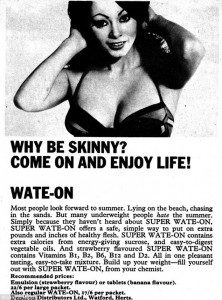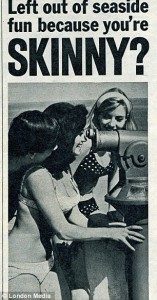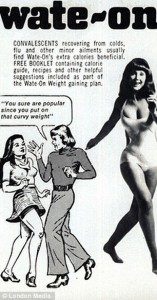Emma Thompson Calls Out Hollywood for Weight Pressure: Dr. Robyn Silverman on Good Morning America
We need people in the limelight to speak up about weight obsession, body image and eating disorders. Thankfully, more and more people have been stepping up. I was on Good Morning America this morning- talking about just that.
Most recently, Emma Thompson, award-winning actress, calls the weight pressures in Hollywood “evil.” She told the Swedish TV show, Skavlan, that:
“It is evil what is going on and happening out there, and it is getting worse…The anorexia… there are so many kids, girls, and boys now, and actresses who are very very thin that are into their 30’s and simply don’t eat. They don’t eat.”
Thompson also revealed that when she worked on the movie “Brideshead Revisited,” she heard one issue of dieting pressure that made her stand up for another fellow actress. She simply couldn’t keep quiet about it. I’m glad she didn’t.
“There was a wonderful actress I was working with and the producer said to her, ‘Will you lose some weight? She was absolutely exquisite. I said to them, ‘If you speak to her about this again, on any level, I will leave this picture, you are never to do that.'”
Any time a high profile person speaks up and says “we are more than our looks” and “this pressure to lose weight and be thin” is not okay, s/he does something very important for women and girls (and boys!) everywhere. She tells them, they are enough as they are.
It’s vital that we have conversations about these pressures and about the way media influences how people think about weight and size. I encourage parents to use what they see in the press as springboards for discussion- what do your children think about these pressures? What do they think about what Emma Thompson said? These conversations are not just important for girls and women but for boys and men too– it’ll take everyone to change these norms and unrealistic expectations.



 “Enjoy life!” “Put on 5 pounds of flesh!” “Left out because you’re too skinny?” Vintage ads paint the picture that full-figured women were the beauty standard of their era.
“Enjoy life!” “Put on 5 pounds of flesh!” “Left out because you’re too skinny?” Vintage ads paint the picture that full-figured women were the beauty standard of their era. These days it seems that people say the word “fat” like they are spitting it out on a plate. This can be really confusing and upsetting for young girls who are going through puberty—a time when it’s very normal and natural to gain an average of 25 pounds! As a young girl or women is gaining weight, many look at it as “getting fat.” It’s common that people bemoan ‘I feel fat” or call themselves ugly names like “whale,,” “pig,” or “heifer.”
These days it seems that people say the word “fat” like they are spitting it out on a plate. This can be really confusing and upsetting for young girls who are going through puberty—a time when it’s very normal and natural to gain an average of 25 pounds! As a young girl or women is gaining weight, many look at it as “getting fat.” It’s common that people bemoan ‘I feel fat” or call themselves ugly names like “whale,,” “pig,” or “heifer.” What would it have been like to live at a time when people thought it was more beautiful to be buxom that thin? Or is the pressure the same whether it’s to be thin or to gain weight in order to fit in?
What would it have been like to live at a time when people thought it was more beautiful to be buxom that thin? Or is the pressure the same whether it’s to be thin or to gain weight in order to fit in?